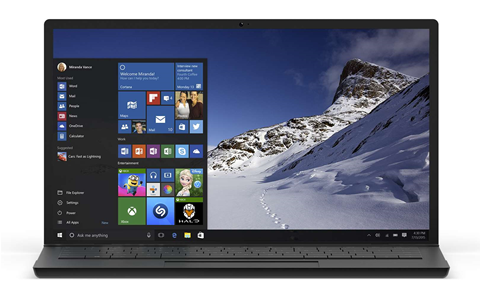Microsoft has announced a new approach to Windows 10 upgrades that ramps up its aggressive rollout plans while at least giving a nod to critics of the process.
In a blog post titled, 'Making it easier to upgrade to Windows 10', Terry Myerson, executive vice president of Microsoft’s Windows and Devices Group, explained how the changes will work.
Microsoft is not slowing down in its attempts to drive upgrades. It is streamlining what was originally a two-step upgrade process – first reserving, then later installing the OS – to a new tack where the upgrade process will automatically begin once users reserve Windows 10.
Another key change will see Microsoft re-categorising the Windows 10 as a “recommended” update” from early next year. This means that some PCs will automatically begin the Windows 10 upgrade process, though Myerson pointed out that users will be ”clearly prompted” to choose whether or not to continue.
If Windows 7 or 8.1 users are not happy with Win10, they will have 31 days to roll back their PC to their previous operating system, including apps and settings.
Under the new approach, users can also turn off notifications of the Windows 10 upgrade in Windows 7 and Windows 8.1.
Myerson addressed the concerns of users on metered connections worried about automatic updated busting their data cap by pointing out that automatic downloads can be turned off. However, he strongly discouraged this, because it means users would need to manually check for important updates, including security updates.
Myerson also addressed concerns from users on metered connections that once installed, Windows 10 was eating up large amounts of data with updates. “Windows 10 will not automatically download updates on a metered connection unless there is a security issue addressed within the update. In addition, Windows 10 contains a number of features for those on metered connections, including monitoring data usage by application and setting data usage quotas."
Users had previously slammed Microsoft for automatically pushing install files to their computers without approval, blowing out data caps for users on metered connections. Microsoft’s latest announcement doesn't directly address the issue of Windows 10 install files downloading behind the scenes without permission.
More than 110 million devices have upgraded to Windows 10, said Myerson.







.jpg&h=142&w=230&c=1&s=1)
_(27).jpg&h=142&w=230&c=1&s=1)




.jpg&w=100&c=1&s=0)








_(1).jpg&q=95&h=298&w=480&c=1&s=1)


